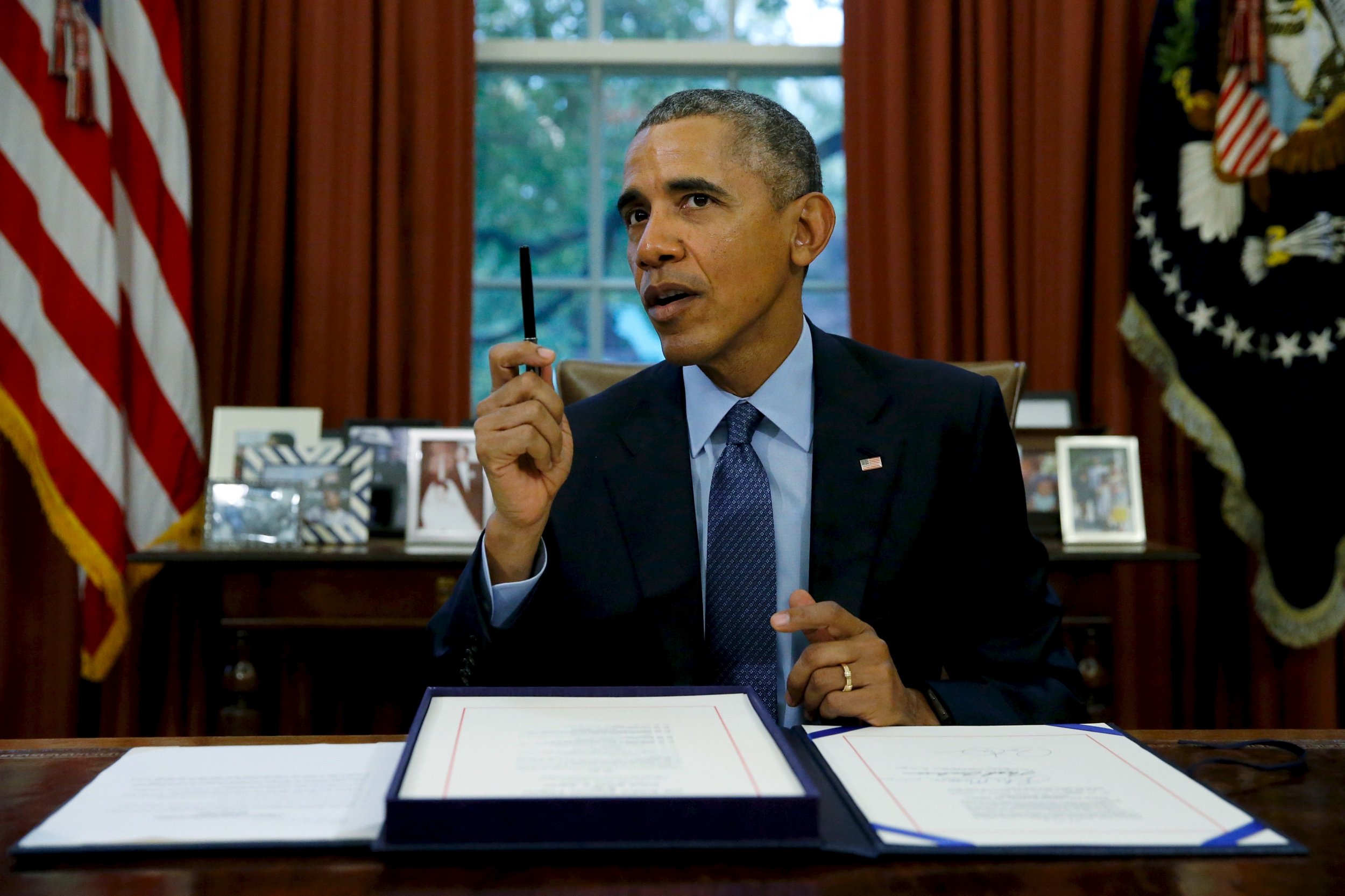
If the Congress doesn't reach a deal—the so-called "CRomnibus" spending bill—by December 11, the federal government will shut down, again. Already, Republicans are staking out their positions for what promises to be a long, drawn-out and ultimately inconsequential battle over issues unrelated to the budget of the federal government of the United States.
Nothing new there. In late September, Congress avoided a shutdown by mere hours after House Republicans tried (and failed) to force Democrats to cut funding for Planned Parenthood in exchange for funding the rest of the government. But Republicans didn't have the votes, the budget bill passed, and the government got three months to breathe.
Nor was that the first time the GOP had used a funding bill to grandstand on an unrelated issue. In March, then-House Speaker John Boehner capitulated to Democrats, letting pass a bill to fund the Department of Homeland Security, after three months of posturing. Boehner hoped to trade Democrats' DHS funding for an end to President Barack Obama's executive actions, but his plan failed. Nor was his principled stand ultimately necessary; the 5th U.S. Circuit Court of Appeals declared Obama's actions unconstitutional in November.
The Democrats are no stranger to obstructionism either. In 1995, Democratic President Bill Clinton vetoed a budget because it did not contain enough funding for Medicare and other social programs. The government shut down for 27 days, in December 1995 and January 1996.
Still more battles loom. The most recent and most vicious is over what to do with refugees trying to enter the United States from Iraq and particularly Syria, where civil war between Syrian President Bashar al-Assad, the militant group calling itself the Islamic State (ISIS) and various other factions (including the United States and Russia) has spiraled out of control. The Obama administration has called for the U.S. to accept 10,000 Syrian refugees by next year, a move a majority of Republicans and not a few Democrats strongly oppose.
Republicans have argued that Syrian refugees pose a security risk, after what authorities thought was a Syrian passport was discovered on the body of one of the attackers who killed 130 in Paris on November 13. The passport was later discovered to be fake, a fact that has not dissuaded Republicans: U.S. Representative Brian Babin (R-Texas) circulated a letter calling for lawmakers to de-fund Obama's refugee resettlement plan.
And most of the Republicans seeking their party's nomination for president oppose allowing Syrian refugees in under current policies. Several have said the U.S. should only admit or give preference to Christians seeking asylum .And more than a dozen governors have said their states will not accept Syrian refugees.
But what to do about refugees isn't the only issue Republicans and the White House may lock horns over come December. On December 11, the same day Congress has to come to an agreement on the budget, White House negotiators will be in Paris, hammering out a climate change deal many have said could be legacy defining for the president.
Republicans may try to attach riders to the spending bill to prohibit the administration from contributing money to the U.N.'s Green Climate Fund, which would transfer money from rich countries to poor ones to help them deal with climate change. The president has pledged $3 billion to the fund so far.
But both Republicans and Democrats refuse to budge on the deal, even though Secretary of State John Kerry has said it will not be a legally binding treaty. So the stage is set for yet another budget battle in December. Some Republicans have hinted at a shutdown without guarantees that anything that emerges from Paris will not be legally binding on the U.S.
Uncommon Knowledge
Newsweek is committed to challenging conventional wisdom and finding connections in the search for common ground.
Newsweek is committed to challenging conventional wisdom and finding connections in the search for common ground.
About the writer
Taylor is a general assignment reporter for Newsweek where he writes about U.S. politics, crime and courts, religion, marijuana law, ... Read more
To read how Newsweek uses AI as a newsroom tool, Click here.








